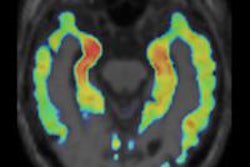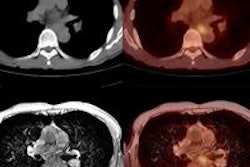An antibody-based molecular imaging agent attacks a newly targeted breast cancer cell receptor, HER3, suggesting a potential new therapy for aggressive disease, according to research presented at the Society of Nuclear Medicine and Molecular Imaging (SNMMI) annual meeting.
Researchers have been developing molecular imaging techniques that image hormonally active breast cancer cells, specifically those testing positive for human epidermal growth factor receptor 2 (HER2), said presenter Dr. Eric Wehrenberg-Klee from Massachusetts General Hospital. HER2-positive breast cancer represents about 20% of all breast cancers.
But a recent innovation in breast cancer biomarkers targets the HER3 receptor instead, which could allow for more comprehensive breast cancer imaging and treatments. HER3 is thought to be an important mediator of resistance to the HER2 inhibitor class of anticancer therapies, which are used to treat HER2-positive breast cancer, according to Wehrenberg-Klee.
Wehrenberg-Klee and colleagues expect that it will take at least another year before one of these investigational agents, known as Cu-64 DOTA-HER3 F(ab')2, will receive regulatory approval and begin being used in clinical practice.



















